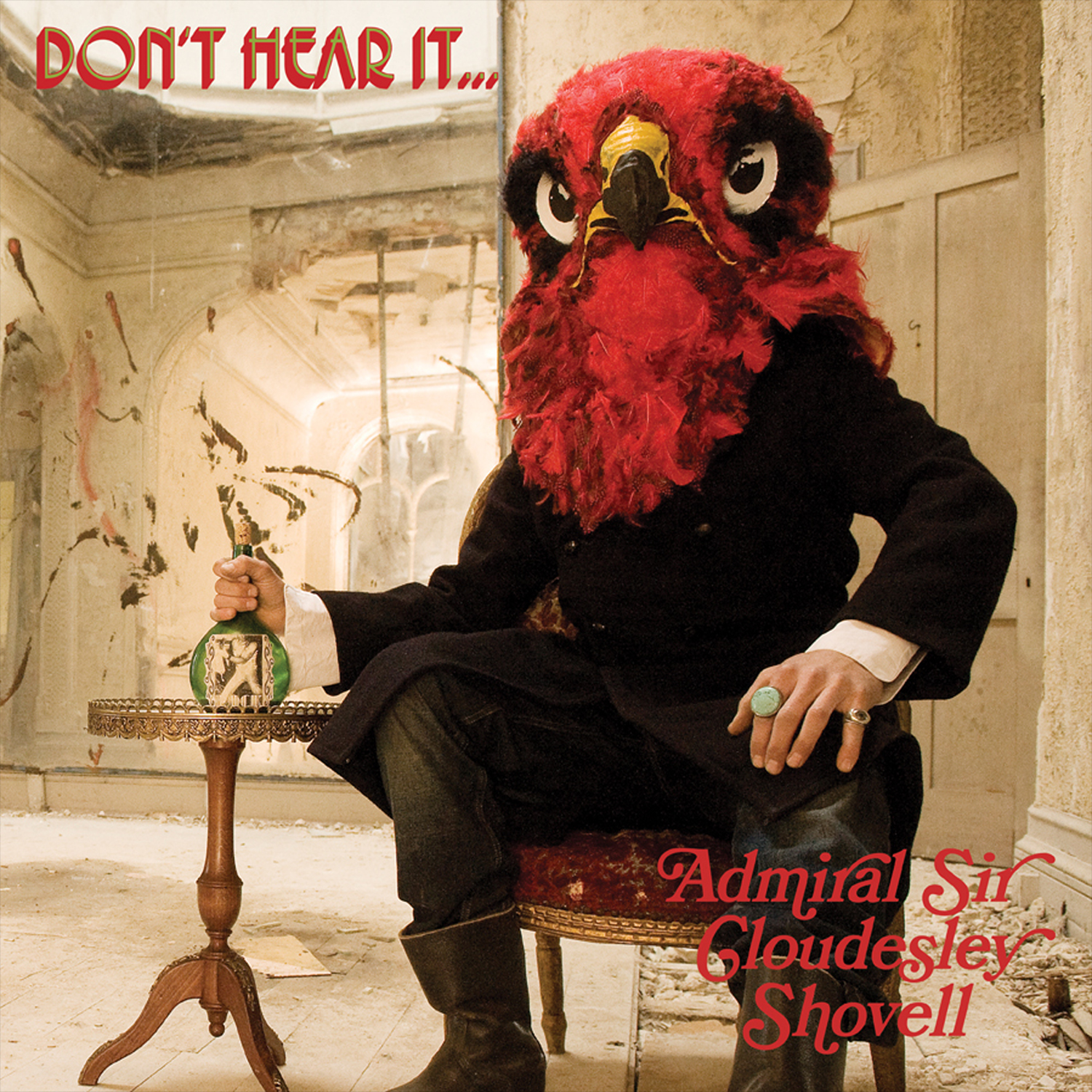
Album Review: Admiral Sir Cloudesley Shovell - "Don't Hear It...Fear It!"
Throughout human history, whenever a cultural force rises to prominence, there is inevitably a counter-movement that rises to meet it. The Roman Empire had the numerous Gothic tribes, Persia was met by the Mongols, the British Empire squared off with various revolutionaries over the centuries, and the New England Patriots are seemingly opposed (and thankfully stymied,) by the New York Giants. Such is the irresistible yin and yang of the universe, the powerful but delicate balancing act of nature.
So to is it with music. In the face of popular sugary ballads and parlor music came rock and roll, an overwhelming tidal wave of popular culture that washed away music that had stood before. This gave way to folk and the counter culture revolution of the sixties, and then in the face of misguided nostalgia, punk rock stole the scene and gave the underground an outlet.
Currently in music of all shades, whether the most saccharine pop song or fastest death metal concoction, the medium is overtaken with the idea of digital perfection. Every note, every tone, every yelp, every drum beat must be tuned and timed and shined into optimum working order. There is to be no coloring outside the lines, and no creative ventures so wild that Pro Tools can’t hogtie it onto a neat, antiseptic, non-linear timeline.
Yet in the seams of the solid, ineffable concrete sidewalk of digital production, brave analog weeds and distorted grasses have set roots and are beginning to crack through to the daylight beyond. Kyuss Lives! was working on a new album before the lawsuits started, The Sword produced a loving homage to metal of the ‘70s, Darkthrone went back to the roots of speed metal, Red Fang murdered some mountains, plus Graveyard, Crowned By Fire, Texas Hippie Coalition and dozens of others have made music about more than how it sounds.
Enter into the fray Admiral Sir Cloudesley Shovell, a raucous British three piece on Metal Blade Records.
Their album “Don’t Hear It…Fear It!” revels in the warm, comfortable atmosphere that is exclusively offered in analog or simulated analog, in welcome contrast to the common age of pitch-perfection. There is no deception here, nothing sleight of hand or overly complicated. The Shovell, as their fans lovingly call them, occasionally gets labeled as progressive, but that desperately stretches the definition of ‘progressive.’ If three guys simply playing what feels good or right, as opposed to what structures dictate, has become progressive, then the entire musical world needs reevaluation.
It is in this spirit that The Shovell best embodies not only the original concept of heavy metal, but the greater ideology of rock and roll. The band draws comparisons to fellow Brits like Black Sabbath (which I think every British metal band does by pure rote,) and their apostles (Church of Misery.) But The Shovell is also possessed of a pure American groove that was perfected by bands like Clutch for the masterpiece that is “Blast Tyrant.” Listen to the brilliant “Devil’s Island” (not a cover of the Megadeth song,) to hear a track that is part Tony Iommi, part Ritchie Blackmore and part “Mob Goes Wild.”
These songs wander without direction like a flighty college road trip, glorious in their scatterbrained creation, often forgetting to include verses and getting wrapped up journeying with the music. The plodding, bass-rounded edges of “iDeath” are merely the framework of a piece that is not afraid to stop and start, dodging in and out of musical bridges that go in any and all directions.
Speaking of, the bass playing of Louis Comfort-Wiggett is an accomplished and capable spine for everything else that “Don’t Hear It…Fear it!” is performing. His tone is impressively dull (words that don’t usually do together,) in the same vein as John Paul Jones in the days of “Led Zeppelin II.” Without his constant carrying of the rhythm, The Shovell might have trouble gaining traction. Nonetheless, Comfort-Wiggett’s bass keeps things grounded and moving forward.
The only noticeable imperfection on this record is that closer “Bean Stew” begins with about seven minutes of silence. Meh. Other than that, I’m sure there are other issues, but I’m having a good enough time listening to the record that I’m not hearing them. I mean, when you listen to “Scratchin’ and Sniffin,’” not only is there another geared-up out of nowhere solo, but then they start in with the “Highway Star” style keyboard. It’s enough to make anyone with an affinity for rock and roll smile.
I’m out of superlatives. If you’ve ever enjoyed a Jimi Hendrix record, the early works of Led Zeppelin or the basic tenets of Black Sabbath and what all those artists stood for, buy this album. “Don’t Hear It…Fear It!” is firmly in the vanguard of analog’s meandering comeback, and Admiral Sir Cloudesley Shovell deserves your time and support.

